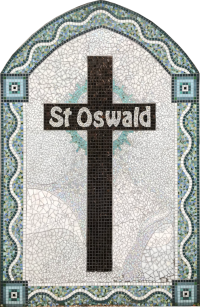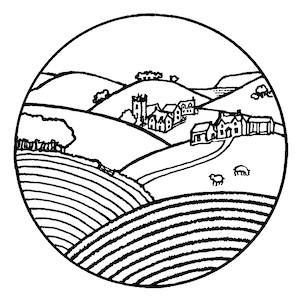14th May: (Sunday before Ascension)
In the Anglican Church, Rogation is celebrated on the fifth Sunday after Easter. Rogation means an asking of God – for blessing on the seed and land for the year ahead. It is appropriate in any emergency, war, plague, drought or foul weather.
The practice began with the Romans, who invoked the help of the gods Terminus and Ambarvalia. In those days a crowd moved in procession around the cornfields, singing and dancing, sacrificing animals, and driving away Winter with sticks. They wanted to rid the cornfields of evil.
In about 465 the Western world was suffering from earthquake, storm and epidemic. So Mamertius, Bishop of Vienne, aware of the popular pagan custom, ordered that prayers should be said in the ruined or neglected fields on the days leading up to Ascension. With his decision, ‘beating the bounds’ became a Christian ceremonial.
Rogation-tide arrived in England early in the eighth century and became a fixed and perennial asking for help of the Christian God. On Rogation-tide, a little party would set out to trace the boundaries of the parish. At the head marched the bishop or the priest, with a minor official bearing a Cross, and after them the people of the parish, with schoolboys and their master trailing along. Most of them held slender wands of willow.
At certain points along the route – at well-known landmarks like a bridge or stile or ancient tree, the Cross halted, the party gathered about the priest, and a litany or rogation is said, imploring God to send seasonable wealth, keep the corn and roots and boughs in good health, and bring them to an ample harvest. At some point beer and cheese would be waiting.
In the days when maps were neither common nor accurate, there was much to be said for ‘beating the bounds.’ It was still very common as late as the reign of Queen Victoria. Certainly, parish boundaries rarely came into dispute, for everyone knew them. (Do you know yours today?)

